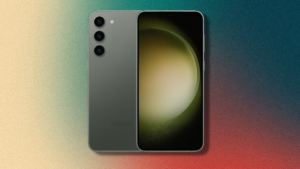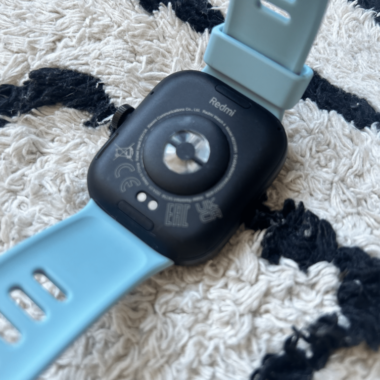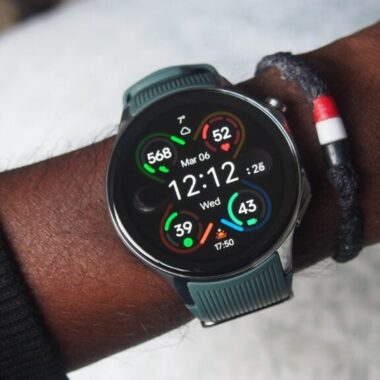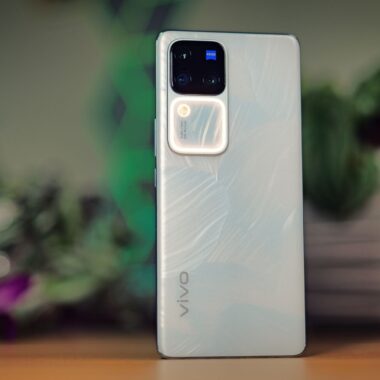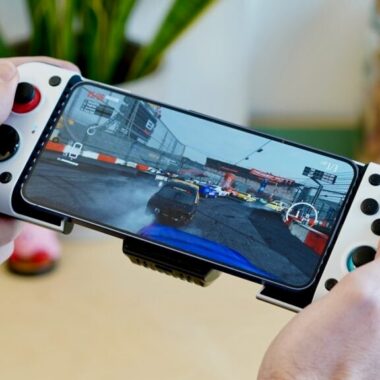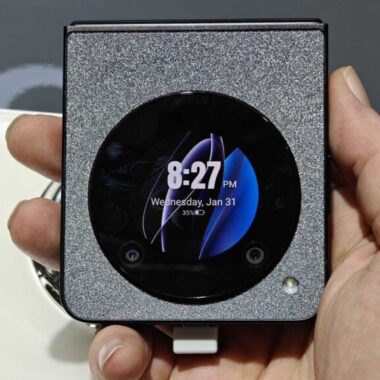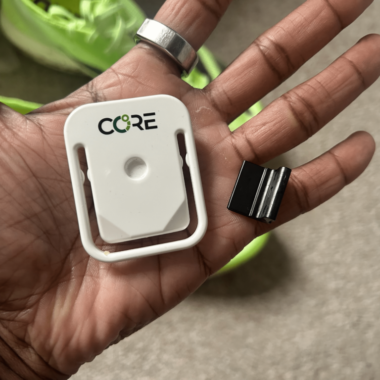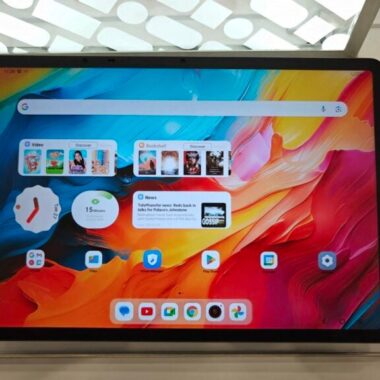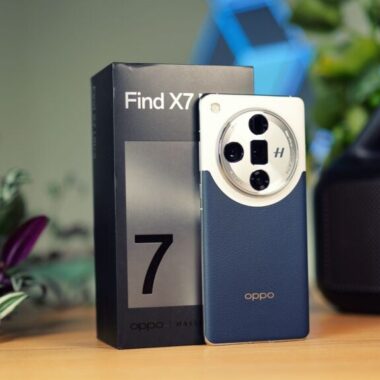The Note 12 Pro Plus 5G looks to be a tempting budget-focused smartphone that could compete with similarly-priced smartphones like Samsung’s Galaxy A34 not only in terms of display and battery life but camera performance with its high-res 200MP snapper, however, software remains a concern with odd UI quirks and plenty of bloatware.
-
Long battery lifeThe large 5,000mAh battery should be more than sufficient to provide all-day usage, and 120W HyperCharge gets you topped up quickly -
200MP rear cameraThe 200MP rear camera looks promising, especially with the use of 16-in-1 pixel binning tech to improve detail and light -
120Hz AMOLED displayIt’s nice to see AMOLED at less than £400, and the 120Hz refresh rate makes things look smooth
Introduction
The budget-focused Xiaomi Redmi Note 12 range is official, though it’s arguably the Note 12 Pro Plus 5G that’s the most interesting.
Despite the price-friendly focus of the range, the Redmi Note 12 Pro Plus boasts premium features including a 200MP rear camera, a 5000mAh battery with 120W fast charging and a 6.67-inch AMOLED display with 120Hz refresh rate. The question is, does great hardware cancel out the sometimes frustrating MIUI Android skin?
I’ve spent a bit of time with the Xiaomi Redmi Note 12 Pro Plus 5G ahead of its launch, and here’s what I think so far.
Price and release date
The Xiaomi Redmi Note 12 Pro Plus 5G wil be be priced at £449/€499. At that price, you’ll get 8GB of RAM and 256GB of storage.
The phone will be available to buy from 23 March 2023 online, and will arrive in physical stores and third-party reatilers the following day.
Design & screen
- All-plastic build
- Slightly curved rear
- 6.67-inch 120Hz AMOLED display
In terms of general look and feel, the Redmi Note 12 Pro Plus 5G looks very similar to the Redmi Note 11 Pro Plus 5G – in fact, with the same general look, display size and camera count on the rear, it’d be quite difficult to tell the difference between the two at a glance.
That said, the Redmi Note 12 Pro Plus is certainly one of the more stylish cheap mid-rangers available in 2023 with the regular combination of a plastic frame and a plastic rear. The plastic does feel slightly cheaper in the hand than glass-backed alternatives like the £449 Samsung Galaxy A54, but the benefit is that it should be more robust when dropped. No shattered rears here – hopefully, anyway!
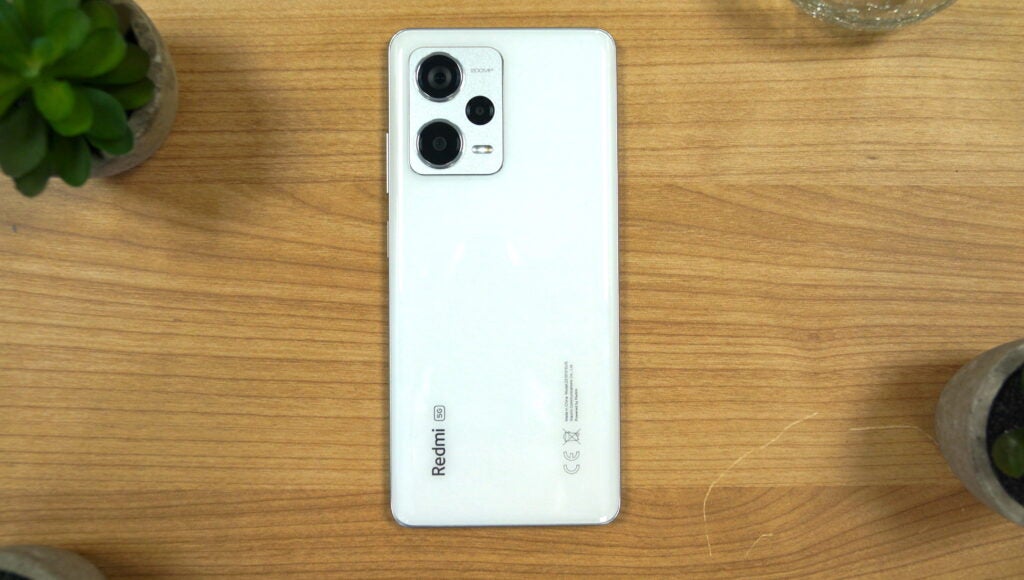
The general look and feel are near-identical to the Note 12 Pro 5G, but rather inexplicably, the Note 12 Pro Plus is both thicker and heavier than its counterpart at 8.9mm and 210g. It’s still far from being a 240g chonk like the top-end iPhone 14 Pro Max though.
It’s nice enough to hold in the hand with a slight curvature at its edges, which makes all the difference with such a big 6.67-inch display on offer, though particularly small-handed consumers may still find it a little unwieldy.
Other key features include a USB-C port for charging and a 3.5mm headphone jack. The latter has become a rarity at the top end of the smartphone market but it’s still going strong in the budget and mid-range spaces. I’ve had Bluetooth headphones for years at this point, and I’m sure many others are in the same boat, but it’s nice to have the support for wired connectivity.
Colours aren’t quite as exciting as some mid-range options like the colourful Samsung Galaxy A34, coming in rather basic White, Black and Blue variants, with the white model photographed here.
The 6.67-inch display is a key focal point of the entire Redmi Note 12 range with all models sporting the same 120Hz AMOLED panel. It’s impressive to see AMOLED tech, especially in the cheaper models, and the slick 120Hz refresh rate that makes everything feel that little bit smoother and more responsive.
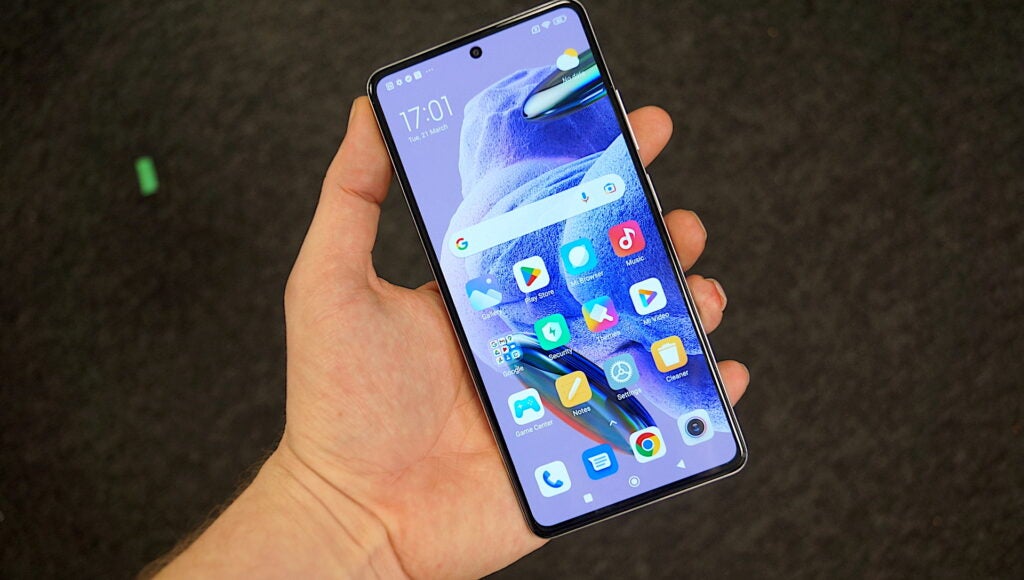
There’s also Dolby Atmos and Dolby Vision HDR support that’ll make supported titles in apps like Netflix pop.
The FHD+ resolution isn’t quite as high-res as more premium models and it is noticeable coming from the Xiaomi 13 Pro, but that’s not a point of reference that most buyers of the Note 12 Pro Plus will have. On its own, the display is fairly bright, with the AMOLED tech delivering vibrant colours and inky blacks that look way better than LCD alternatives.
Camera
- Main 200MP camera
- Big improvement to low-light performance
- 8MP ultra-wide
With the Pro Plus moniker, it should come as no surprise that the Redmi Note 12 Pro Plus has the best camera performance of the budget-focused range, sporting a combination of a main 200MP snapper – up from the 108MP of last year’s Pro Plus –, an 8MP ultra-wide and a not-so-impressive 2MP macro lens. The latter two lenses are the same as those of the Note 12 Pro, with the main lens offering the true upgrade.
The main 200MP lens does have potential, with 16-in-1 pixel binning tech allowing the phone to capture much more light and detail than its predecessor – 159% more light according to Xiaomi – which should be particularly beneficial in darker environments. That’s backed up by Atomic Layer Deposition tech that should further improve image quality in challenging light conditions.
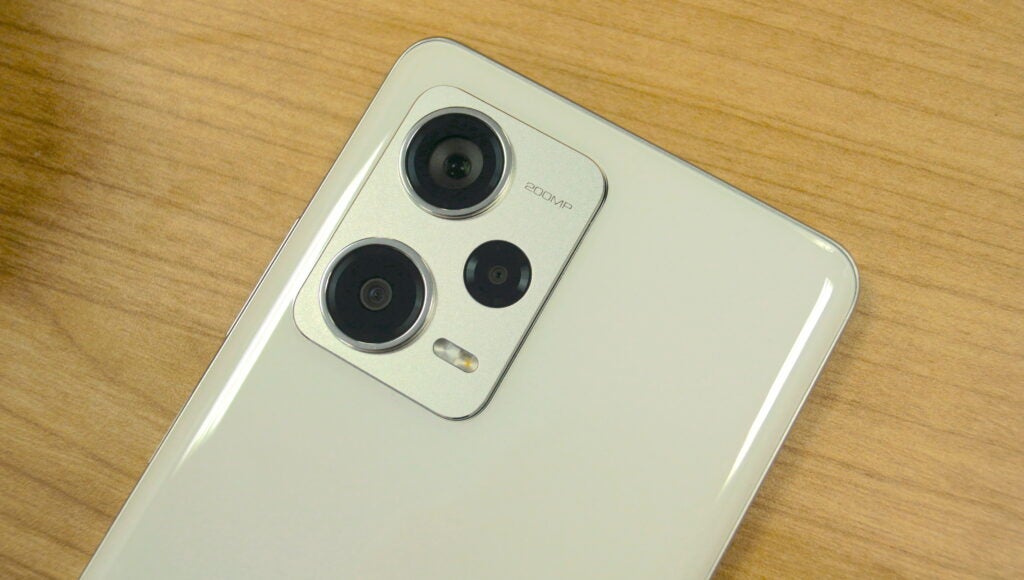
That sounds exciting and, if true, should differentiate the Note 12 Pro Plus from most of the mid-range competition, especially in the low-light department where mid-rangers are notoriously hit-and-miss. That said, don’t expect images akin to those taken by the Galaxy S23 Ultra’s 200MP snapper – that’s powered by a different sensor altogether.
The few quick snaps I’ve taken with the main lens so far boast decent light and detail, though I’m yet to put its low-light capabilities to the test. It’s not quite the case with the ultra-wide, however, with images looking comparatively soft, with a different colour temperature that makes it easy to spot which lens has taken which image.
Performance
- MediaTek Dimensity 1080
- 5000mAh battery with 120W HyperCharge
- MIUI 14 based on Android 12
While the design, display and cameras are of a fairly high quality, the same can’t quite be said for the processor. Hey, there has to be a sacrifice somewhere right?
With that said, at the heart of the Redmi Note 12 Pro Plus 5G you’ll find MediaTek’s Dimensity 1080, a distinctly mid-range focused chipset used in the likes of the Samsung Galaxy A34 – a phone that costs £100 less – coupled with 8GB of RAM and 256GB of storage as standard.
Now, don’t go expecting flagship-level performance from the 6nm chipset – but given the mid-range price tag, I feel like that goes without saying. However, during my limited time with the phone so far, it has felt fairly responsive in general.
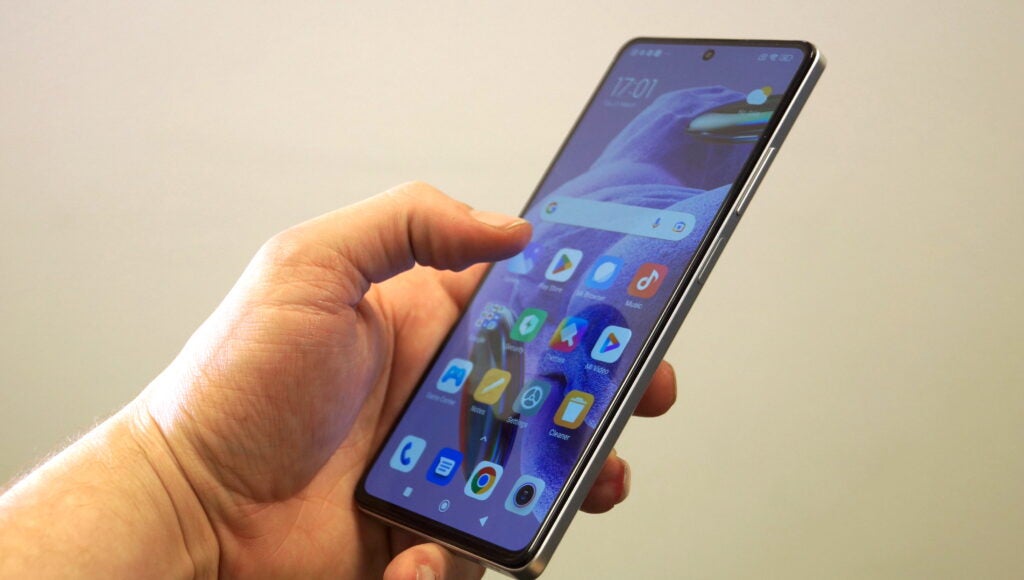
There are times when the phone hangs slightly longer than it should, like when transitioning from the lock screen to the home screen and when switching between apps on the fly, but generally speaking, it’s able to do most things without complaint – just don’t expect to run demanding apps like LumaFusion or top-end games like Call of Duty Mobile with high-end textures enabled.
The budget nature of the phone is also apparent when you look at the software. Despite Android 13 being out for almost a year, the Redmi Note 12 Pro Plus ships with Android 12. If that’s not bad enough, it uses Xiaomi’s controversial MIUI 14 skin that, let’s say, Apple-fies the Android experience with features like a split notification shade and quick controls.
The OS is also known for bloatware, both Xiaomi-branded and third-party, and that’s still very much the case with MIUI 14. The one benefit, at least, is that Xiaomi has done the right thing and removed advertising (yes, older skins literally had built-in ads) present in older versions of the UI.
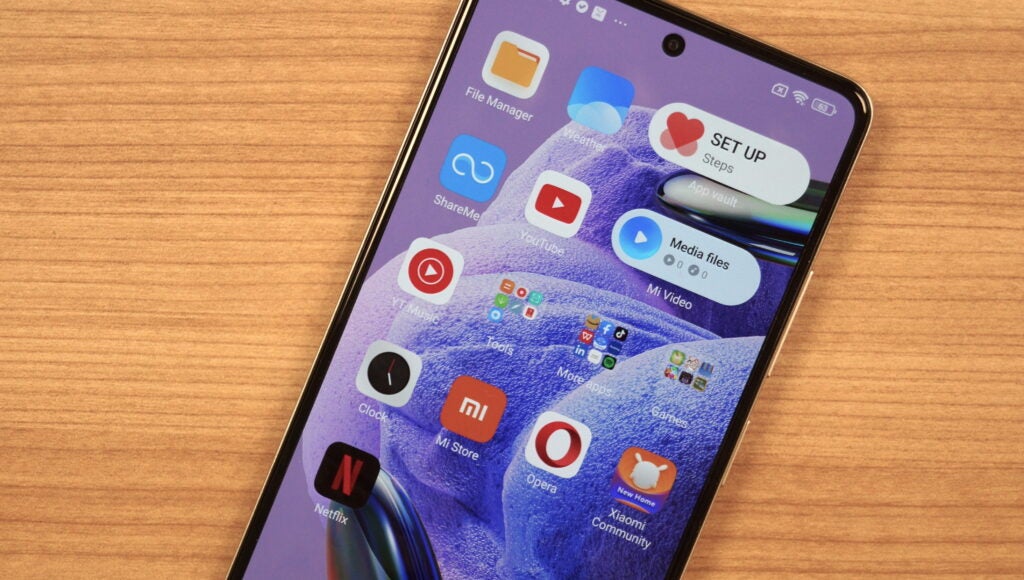
Despite its affordable mid-range price tag, the Note 12 Pro Plus doesn’t skimp when it comes to battery life and, in particular, charging speeds.
The phone packs in a large 5,000mAh battery that should have no issue lasting all day on a single charge – that has been my experience with other 5000mAh phones like the Galaxy S23 Ultra, at least, though I’ll be putting that to the test in the coming days.
Even if it doesn’t last all day without needing a top-up – something I can’t imagine actually happening – then the blisteringly fast 120W HyperCharge tech can, according to Xiaomi, provide a full 100% charge in just 19 minutes. That largely rang true with the identical combination of a 5000mAh cell and 120W charging with the top-end Xiaomi 13 Pro, so I’m expecting similar levels of performance here.
That 120W fast charging tech not only beats most of the competition in the budget and mid-range space – aside from the 240W Realme GT 3 Pro, that is – but plenty of flagships too. Top-end phones like the Galaxy S23 Ultra top out at just 45W, while the iPhone 14 Pro Max can handle around 25W at a push.
Early Verdict
The Xiaomi Redmi Note 12 Pro Plus 5G looks to be a tempting budget-focused smartphone that could easily compete with similarly-priced smartphones like Samsung’s Galaxy A34 not only in terms of display and battery life but camera performance with its high-res 200MP snapper. The 120W fast charging is also a very nice touch and something not seen often in the mid-range space.
The downsides are par for the course when it comes to Xiaomi phones – the MIUI experience is very iOS-like, for better or for worse, and the phone comes with a lot of bloatware pre-installed.
Still, I’m very interested in spending more time with the Xiaomi Redmi Note 12 Pro Plus, and will deliver my final thoughts soon.
FAQs
With an IP53 rating, the Note 12 Pro Plus should be able to survive a splash of water but it can’t be submerged.
Jargon buster
mAh
An abbreviation for milliampere-hour and a way to express the capacity of batteries, especially smaller ones in phones. In most cases the higher the mAh, the longer the battery will last but this isn’t always the case.
OLED and AMOLED
Types of displays that use self-lighting pixels to provide greater contrast and more vibrant colours than a typical LCD display, as well as sharper blacks.
IP rating
An abbreviation for ‘Ingress Protection Code’, which lets you know to what extent a device might be waterproof or dustproof.


